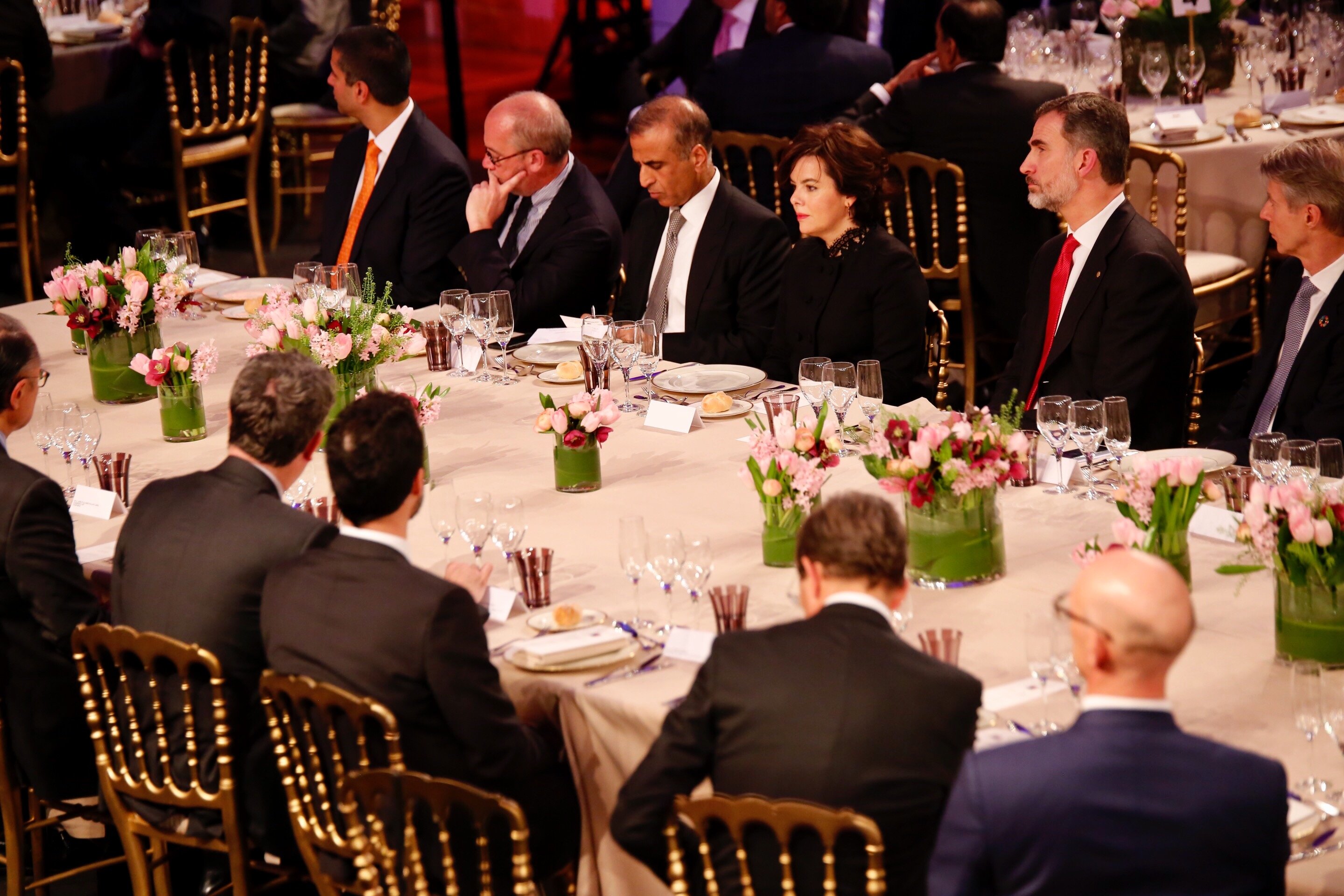Juan Carlos I never faced a protest like the one in Barcelona on Sunday against his son, Felipe VI. In the run-up to his abdication, more burlesque comments than critical ones were made about his lovers, about his fondness for hunting elephants and about his commission agent spirit in selling large infrastructure to Arab counterparts, but protests in the streets proclaiming the rejection of the Spanish monarch and a lack of respect from democratic representatives isn't an anecdote, but a historical turning point.
Unlike prime ministers, monarchs have to set themselves up as consensus figures. When they stop being so, their days are numbered. Or their years are. It doesn't matter, because, from this moment on, the countdown becomes omnipresent and their faces look like they've got a stomach ache, as betrayed by the photographs.
It's nothing new for the Bourbons to look for protection in the most reactionary segments of society and for them to end up fleeing. The coup on 23rd February 1981 was an exception. Juan Carlos I had some hours of doubt, as then prime minister Adolfo Suárez later explained to a group of Catalan journalists and as Pilar Urbano explains well, but he had good council and good-enough instinct to work out what the winning bet was at that moment. For that reason he lasted longer than his predecessors. In any case, after the coup, he gathered together the, let's say, dynastic parties, read them his short statement and then came the LOAPA (Law for the Harmonisation of the Autonomic Process) and the rest.
So, what happened on Sunday is unheard of and clearly shows the regime crisis affecting Spain. Not only for the protests against the head of state. Also for the irate reaction from the establishment in defence of His Majesty which demonstrates unusual fears, like when a badly-wounded animal, fearing death, fights for survival with greater ferocity than ever.
The episodes these days of reverence towards power and the acts of servitude are not appropriate for a normalised democratic political situation. We can check this following the events of this weekend. The Spanish government, in a statement, says: "The rebuffs announced by certain institutional representatives, as well as unjust and mean-spirited, put Barcelona's ability to continue hosting a global event of such importance at risk". It's clear that this is a threat, because the Spanish government isn't the event's organiser, but everyone understands that it has enough power to sabotage this private initiative. Previously, the newspapers El País and El Mundo represented, more or less, those "two Spains" which Antonio Machado wrote about and previously neither of the two would have so uncritically swallowed a governmental slogan, but the times they are a-changing, and not precisely for the better. On Monday, their headlines read "The boycott of the king threatens the future of the Mobile [World Congress] in Barcelona" and "The secessionist rebuff of the king threatens the Mobile in Barcelona". There's no difference and, indeed, all of the newspapers published around the whole of Spain emphasised the same idea dictated by the Moncloa government palace.
Now in Spain there is a king facing questions: a government consumed by corruption and a weak opposition. The rich are richer and the poor, poorer. And the main media outlets are competing to see which can flatter them the most. There are none, therefore, of the anti-establishment forces proper of any democracy. And also for this reason, there are political prisoners and politicians in exile, persecuted critical journalists, artists and comedians facing reprisals, censored artworks and retirees in the street confronting the police. All of this will, inexorably, end up exploding. And, for this reason, the king is, justifiably, so scared.

